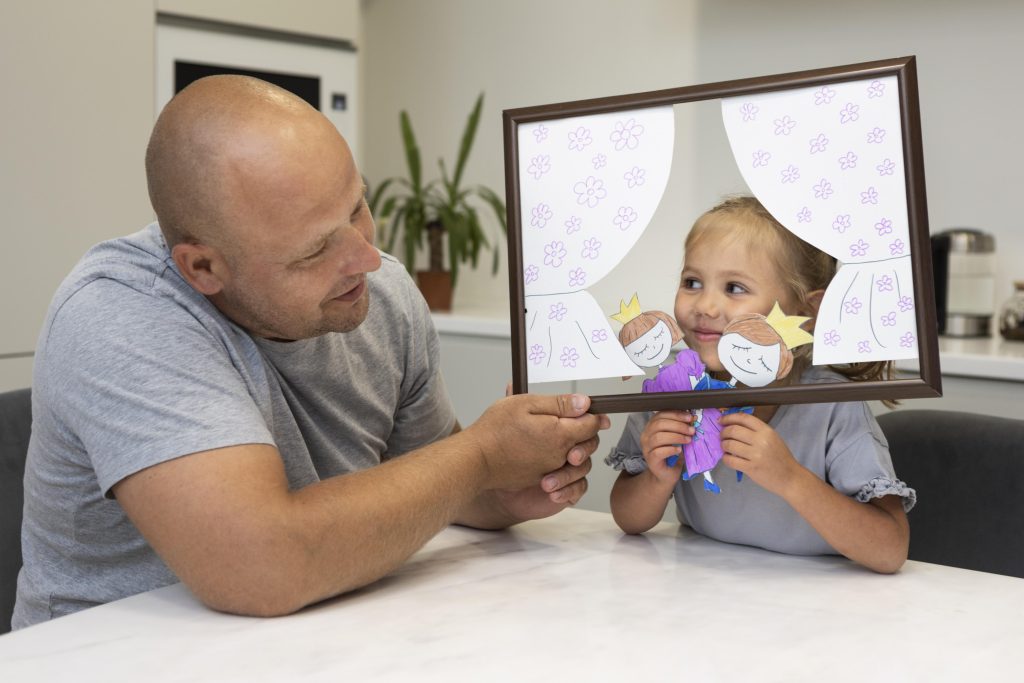Features To Look For While Choosing the Best Emotional Disabilities App For Kids
- Personalized Support
When selecting an emotional disabilities app, it’s crucial to choose one that offers personalized support. Every child’s emotional needs are different, and the best apps provide tailored strategies to help manage these needs. Look for apps that allow you to customize the experience based on your child’s unique emotional profile, ensuring the support they receive is relevant and effective. Personalized support might include adaptive learning paths that adjust based on the child’s progress or challenges. This feature ensures that the app grows with your child, offering more complex strategies as their emotional intelligence develops. Additionally, the ability to input specific triggers or stressors into the app can help tailor the experience even further, making the app an invaluable tool for both the child and the caregiver.
- User-Friendly Interface
A user-friendly interface is essential in a Disability Management App. Children, especially those with emotional disabilities, need an app that is easy to navigate and understand. The best apps are designed with simplicity in mind, featuring clear instructions, engaging visuals, and intuitive controls. This ensures that children can use the app independently, fostering a sense of autonomy and confidence. A user-friendly design also minimizes frustration, which is crucial for children who may already be dealing with heightened emotional sensitivity. Look for apps that use bright, inviting colors and characters that are relatable and comforting. The layout should be intuitive enough that children can explore the app on their own, which can boost their self-esteem and encourage regular use.
- Evidence-Based Strategies
Another key feature to look for in the Best Emotional Disabilities App for Kids is the use of evidence-based strategies. These apps should be developed with input from psychologists, educators, and other experts in child development. The strategies provided should be grounded in research, focusing on proven methods for managing emotions, building resilience, and improving overall well-being. Evidence-based strategies ensure that the app isn’t just entertaining but also effective in fostering emotional growth. These strategies might include cognitive-behavioral techniques, mindfulness practices, or emotion-recognition activities, all of which have been shown to help children better understand and manage their feelings. The inclusion of these methods gives parents and caregivers confidence that the app is a reliable tool for supporting their child’s emotional development.
- Emotional Regulation Tools
Effective emotional disabilities apps offer tools that help children regulate their emotions. This might include breathing exercises, mindfulness activities, or interactive games that teach coping skills. The goal is to provide children with practical tools they can use in real-life situations to manage their emotions and reduce stress. Emotional regulation tools are particularly important for children who may struggle with impulse control or who experience intense emotions. Apps that incorporate guided breathing exercises or calming visualizations can help children learn to pause and regain control when they feel overwhelmed. Additionally, games that simulate challenging emotional scenarios can provide a safe space for children to practice their responses, helping them build resilience over time.
- Parental Involvement
While it’s important for children to have independence, parental involvement is also key in helping them manage emotional disabilities. The best apps will include features that allow parents and caregivers to monitor progress, provide support, and stay informed about their child’s emotional health. This collaborative approach ensures that the app’s benefits extend beyond the screen and into everyday life. Some apps offer daily or weekly reports that summarize the child’s activities and emotional progress, giving parents insight into areas where their child may need additional support. Other apps include a communication feature that allows parents and children to set goals together or discuss the child’s experiences within the app. This kind of involvement not only strengthens the parent-child relationship but also reinforces the strategies learned through the app.
- Flexibility and Adaptability
Another crucial factor when selecting the Best Emotional Disabilities App for Kids is flexibility. Emotional needs can vary from day to day, and an effective app should be adaptable to these changes. Look for apps that allow adjustments in intensity or focus, providing a range of tools that can be used as needed. For example, on a particularly stressful day, the app might offer more calming exercises, while on a better day, it could focus on building emotional strength and resilience. This adaptability ensures that the app remains relevant and useful regardless of the child’s current emotional state.

Creative works made with paints
Real-Life Example: How TinyBit Helped Sarah Manage Her Emotions
Meet Sarah, a 7-year-old girl who has always struggled with managing her emotions. Sarah’s parents noticed that she had difficulty expressing her feelings and often felt overwhelmed in social situations. They tried various methods to help her, but nothing seemed to work until they discovered TinyBit’s app.
- Personalized Support
The first thing Sarah’s parents noticed about TinyBit was its ability to offer personalized support. The app allowed them to input Sarah’s specific triggers and emotional needs. For instance, Sarah often felt anxious in large groups, so the app suggested calming exercises that could be used before and during these situations. Over time, these personalized strategies helped Sarah feel more in control of her emotions.
- User-Friendly Interface
Sarah was able to navigate TinyBit’s app independently, thanks to its simple and engaging interface. The bright colors and friendly characters made it easy for her to understand what she needed to do. The intuitive design also encouraged Sarah to explore different features on her own, which boosted her confidence and made her more willing to use the app regularly.
- Evidence-Based Strategies
TinyBit’s app offered Sarah evidence-based strategies that were both fun and effective. The app introduced her to mindfulness practices through interactive games that taught her how to focus on her breathing and stay calm. These strategies, recommended by child psychologists, helped Sarah learn to manage her anxiety and become more resilient.
- Parental Involvement
Sarah’s parents were actively involved in her progress through the app’s parental features. They received weekly reports on her emotional development and were able to set goals together. This not only strengthened their relationship but also reinforced the strategies Sarah was learning, making them more effective in real-life situations.
- Flexibility and Adaptability
TinyBit’s app adapted to Sarah’s changing emotional needs. On days when she was feeling particularly stressed, the app offered more calming activities. On better days, it focused on building her emotional strength. This flexibility ensured that Sarah always had the right tools at her disposal, no matter what she was going through.
How TinyBit’s App Stands Out
TinyBit’s app is a standout choice for families seeking the Best Emotional Disabilities App for Kids. Designed with the unique needs of children with emotional disabilities in mind, TinyBit offers a comprehensive suite of tools that go beyond simple emotional regulation. The app integrates cognitive-behavioural techniques with creative expression, allowing children to explore their emotions through art, music, and storytelling. This combination of methods helps children process their feelings in a safe and supportive environment, making the app not just a tool for emotional regulation but also a space for emotional growth.
For parents and caregivers, TinyBit also functions as a Disability Management App, offering insights into your child’s progress and allowing you to stay involved in their emotional development. The app’s user-friendly interface makes it accessible to children of all ages, while its robust security measures ensure your family’s data is protected.
In addition to its emotional support features, TinyBit also ranks among the Best Special Needs Apps for Kids, offering solutions for a variety of challenges faced by differently-abled children. Whether your child struggles with communication, adapting to new environments, or simply managing daily tasks, TinyBit provides the tools they need to succeed. TinyBit’s versatility is another reason it stands out. It’s not just an app for emotional disabilities; it’s a comprehensive tool that supports various aspects of a child’s development. This makes it an ideal choice for families with multiple needs, providing a one-stop solution for emotional, cognitive, and developmental support.
Conclusion
Finding the Best Emotional Disabilities App for Kids involves looking for personalized support, a user-friendly interface, evidence-based strategies, and tools for emotional regulation. TinyBit’s app stands out as an exceptional choice, offering comprehensive features that cater to the unique needs of children with emotional disabilities. With TinyBit, parents and caregivers can feel confident that their child are receiving the support they need to thrive.
By considering the features outlined in this guide and evaluating how they align with your child’s specific needs, you can make an informed decision that will benefit your child’s emotional health. Whether your focus is on day-to-day emotional regulation, long-term resilience building, or creating a supportive environment for emotional growth, the right app can make all the difference in your child’s life. And for many families, TinyBit may be the perfect solution.




